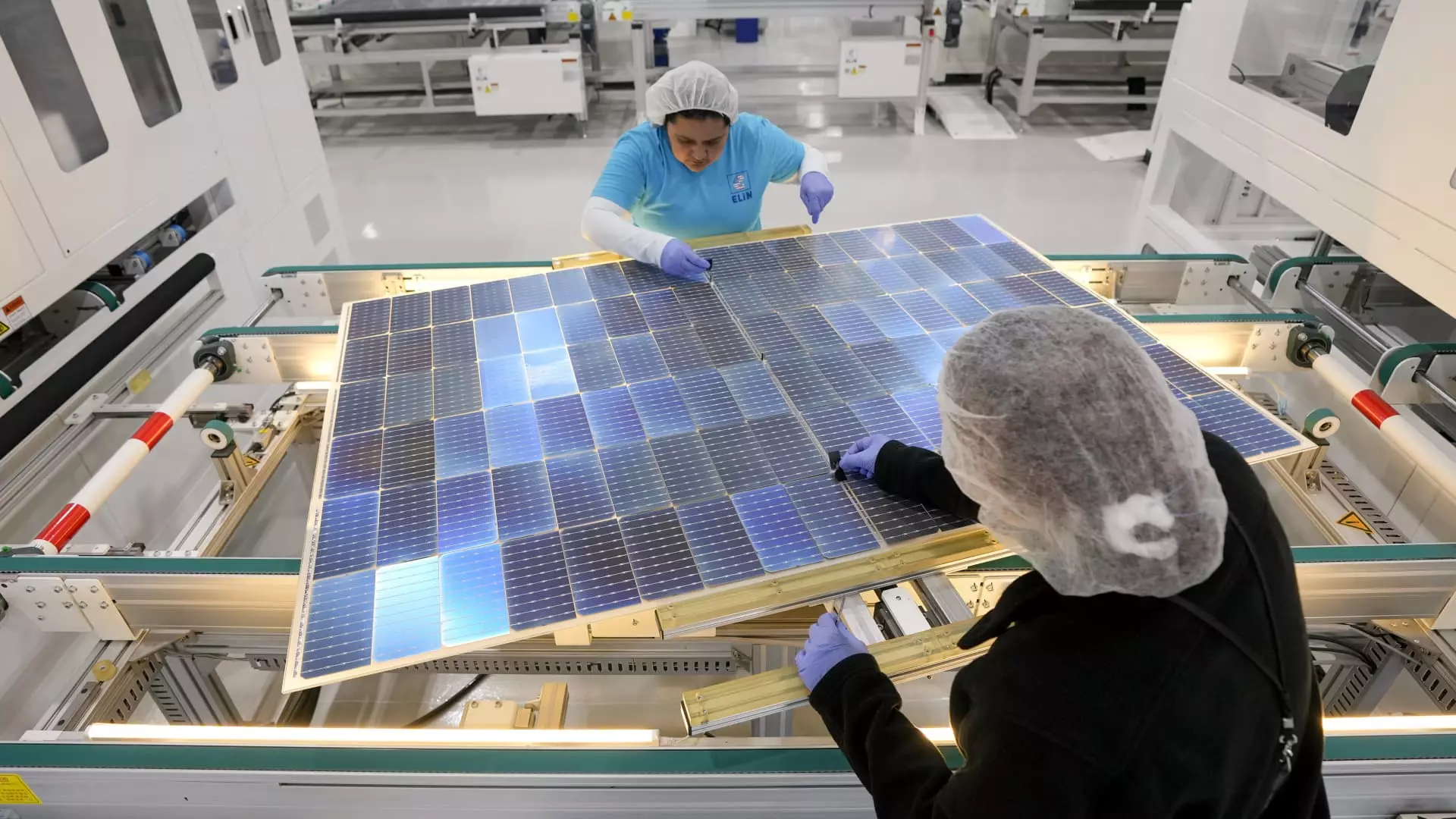The Inflation Reduction Act has had a significant impact on rural communities in the U.S., sparking a manufacturing boom that has attracted tens of billions of dollars in investment. The legislation, signed into law by President Joe Biden in August 2022, has led to a surge in clean energy technology and electric vehicle manufacturing investments. The future of these investments, however, is uncertain, as the outcome of the upcoming U.S. presidential election could have a direct impact on the IRA.
Since the implementation of the IRA, companies have announced an impressive $133 billion in investments in clean energy technology and electric vehicle manufacturing. Data from the Massachusetts Institute of Technology and the Rhodium Group shows that actual manufacturing investment has reached $89 billion, marking a 305% increase compared to the two years prior to the IRA. Overall, the legislation has leveraged half a trillion dollars of investment across the manufacturing, energy, and retail sectors.
The investments triggered by the IRA have not only driven economic growth but have also created opportunities for job seekers. More than 100,000 jobs are expected to be generated by the 271 manufacturing projects for clean energy tech and electric vehicles that have been announced post the passing of the IRA. This has been hailed as a significant boon for rural communities, which have traditionally not received the same level of investment as big cities.
One of the key outcomes of the IRA has been the acceleration of renewable energy deployment. A total of $108 billion has been invested in utility-scale solar and battery storage projects, with investments in solar and battery storage surging by 56% and 130%, respectively, over the past two years. This has been described as a significant step towards achieving energy sustainability and reducing carbon emissions.
Despite the positive impact of the IRA, the legislation faces uncertainty due to the upcoming U.S. presidential election. Former President Donald Trump has threatened to repeal the law if he is re-elected. His focus on oil, gas, and coal production has raised concerns among investors and industry experts. Trump’s stance on rolling back renewable energy investments and tax credits could impact the future of clean energy technology and manufacturing.
The IRA’s future has become a topic of concern among investors, particularly after President Joe Biden’s debate performance in late June. Clean energy stocks took a hit as investors feared a possible Republican victory in the future elections. Companies like First Solar experienced challenges in accessing capital, with some investors considering a shift back to fossil fuel projects. The unpredictability of the political environment has led many to pause investment decisions until the policy landscape becomes clearer.
Renewable energy executives and analysts have expressed confidence in the long-term viability of renewable energy investments, despite the political uncertainties. The industry believes that investment, production, and manufacturing tax credits will continue to support clean energy and technology projects, even under a Republican administration. Companies like NextEra Energy, with a vast portfolio of renewable energy assets, remain optimistic about the future of clean energy in the U.S.
The Inflation Reduction Act has been instrumental in driving manufacturing growth, job creation, and renewable energy deployment in the U.S. While the legislation has faced threats and uncertainties, its impact on rural economic development and clean energy investments cannot be understated. The outcome of the U.S. presidential election will play a crucial role in determining the future trajectory of the manufacturing sector and the renewable energy industry.

